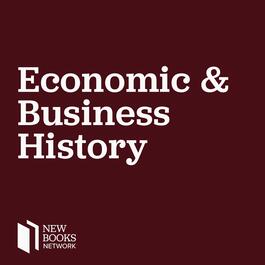
New Books in Economic and Business History
Interviews with scholars of the economic and business history about their new books
Show episodes

Gavin Williams, "Format Friction: Perspectives on the Shellac Disc" (U Chicago Press, 2024)
With the rise of the gramophone around 1900, the shellac disc traveled the world and eventually became the dominant sound format in the first half of the twentieth century. Format Friction brings together a set of local encounters with the shellac disc, beginning with its preconditions in South Asian knowledge and labo
Where the Red-Winged Blackbirds Sing: The Akimel O'odham and Cycles of Agricultural Transformation in the Phoenix Basin (UP of Colorado, 2021) is not a simple story of environmental decline and colonial imposion. In this brilliantly interdisciplinary book, Goucher College peace studies professor Jennifer Bess instead w

Thomas M. Kemple, "Marx's Wager: Das Kapital and Classical Sociology" (Palgrave MacMillan, 2022)
Marx’s Capital looms large today, a century and a half after first publication, a massive tome that attempts to document and map out the dynamics of a society consumed by capital accumulation. The complexity and scope, as well as its voluminous incompleteness upon his death, have left many readers perplexed, looking fo

Daniel Morales, "Between Here and There: The Political Economy of Transnational Mexican Migration, 1900-1942" (Oxford UP, 2024)
Between Here and There is the first history of the creation of modern US-Mexico migration patterns narrated from multiple geographic and institutional sites. This book analyzes the interplay between the US and Mexican governments, civic organizations, and migrants on both sides of the border and offers a revisionist an
Sarah Teasley's Designing Modern Japan (Reaktion, 2022) unpicks the history of Japanese design from the mid-nineteenth century to the end of the twentieth, focusing on continuities and disruptions within communities and practices of design. Designing Modern Japan explores design in the unfolding contexts of modernizati

Christopher Marquis and Kunyuan Qiao, "Mao and Markets: The Communist Roots of Chinese Enterprise" (Yale UP, 2022)
Mao and Markets: The Communist Roots of Chinese Enterprise (Yale University Press, 2022) by Dr. Christopher Marquis & Dr. Kunyuan Qiao presents a thoroughly researched assessment of how China’s economic success continues to be shaped by the communist ideology of Chairman Mao It was long assumed that as China embraced o





